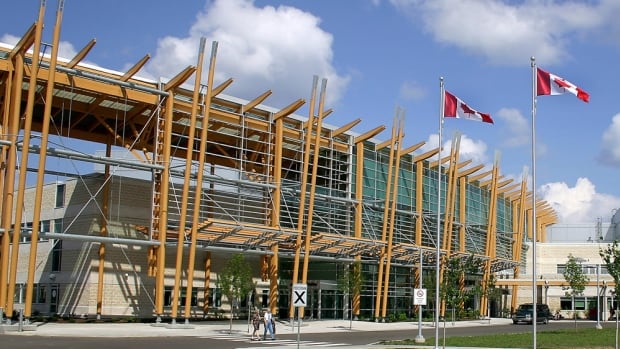
Birth alerts still happening at Thunder Bay hospital despite Ontario halt to them, First Nations leaders say
CBC
Ontario stopped allowing the practice of birth alerts — child welfare agencies notifying a hospital when they believe a newborn may be in need of protection — in late 2020, but First Nations leaders say it's still happening at Thunder Bay's hospital.
The province ordered an end to birth alerts, which have long been reported to disproportionately affect Indigenous families, in response to a call to action from the 2019 inquiry into murdered and missing Indigenous women and girls (MMIWG). The parent isn't notified of these alerts, which could result in the agency immediately taking the baby away from the parent after the birth.
But Matawa First Nation chiefs say their members have told them child welfare agencies are still making birth alert arrangements with staff at Thunder Bay Regional Health Sciences Centre. Matawa members must travel to Thunder Bay to give birth because health stations in their communities don't provide non-emergency maternity care.
"It is distressing to the Matawa Chiefs Council that — after two years of their being mandated by the Ontario government to be discontinued — we are still hearing that birth alerts are still taking place in Thunder Bay and in municipalities where Matawa women are birthing their babies," Webequie First Nation Chief Cornelius Wabasse says in a release.
In the Ontario Legislature on Wednesday, Kiiwetinoong NDP MPP Sol Mamakwa, who represents Matawa communities, said birth alerts are a "gross violation of the rights of the child, the mother and the Indigenous community as a whole," and called the practice "traumatic to our nations."
The Thunder Bay Regional Health Sciences Centre and Dilico Anishinabek Family Care did not respond to CBC's request for interview or comment at time of publication.
Cora McGuire-Cyrette, executive director of the Ontario Native Women's Association, isn't surprised to hear the allegations, calling them "the tip of the iceberg" of anti-Indigenous systemic racism at Thunder Bay's hospital.
"We're addressing deep-rooted, systemic racist views within the system, even the practice of ending birth alerts and direction and political will. We knew that wasn't going to happen overnight," she said.
"We need to look at the health-care system, what needs to happen next. We've provided recommendations, as has the Truth and Reconciliation [Commission] calls to action. There are specific actions for the health-care system 18 to 31, so I'd like to know what the Thunder Bay regional hospital has done toward any of those actions."
McGuire-Cyrette is calling for health providers to begin open conversations about the quality of services that Indigenous patients are receiving.
Birth alerts have been stopped in much of Canada, but some controversy remains.
Long before Ontario's halt to birth alerts took effect, one Matawa community was advocating to ensure newborns remained with their expectant mothers.
In 2014, Judy Desmoulin, a councillor at the time, was contacted by a member who was living in Long Lake #58 First Nation. The woman was seven months pregnant when she received a call from the family who had raised her in foster care. She thought they were calling to just catch up, but was told child services had asked that family to raise her baby after the birth.
"Especially with this first case, I saw absolutely no reason why somebody should remove this child from this family," Desmoulin said, adding the woman had been enrolled in smoking cessation and family planning programs at the time.











